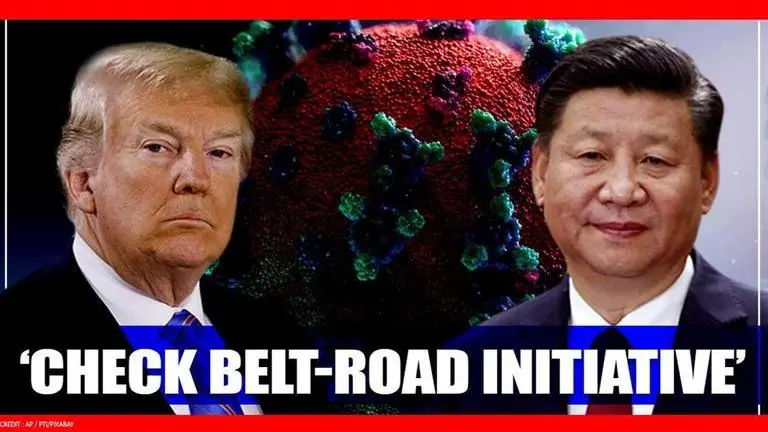Updated 25 April 2020 at 10:15 IST
US netas tell Trump to hit China where it hurts: Xi Jinping's flagship Belt & Road plan
A group of US senators on Friday urged the President Donald Trump-led administration to study the impact of the China-funded Belt and Road Initiative on the finances of troubled economies.
- World News
- 4 min read

A group of US senators on Friday urged the President Donald Trump-led administration to study the impact of the China-funded Belt and Road Initiative on the finances of troubled economies.
China's massive Belt and Road Initiative (BRI) seeks to build rail, maritime and road links from Asia to Europe and Africa in a revival of the ancient Silk Road trading routes.
"We urge the State Department and the Treasury to consider the impact of the Chinese-financed Belt and Road Initiative on the finances of many troubled economies and policy implications of additional International Monetary Fund (IMF) or World Bank support," the senators wrote in a letter to Secretary of State Mike Pompeo and Treasury Secretary Steven Mnuchin.
The issues related to BRI, earlier known as One Belt One Road (OBOR), has been a major bone of contention between India and China as one portion of the corridor passes through Pakistan-occupied Kashmir.
Advertisement
"Domestic economic constraints in China stemming from COVID-19 will likely make China less willing to roll over debts as they mature, which could exacerbate emerging-market liquidity challenges. As projects struggle in areas of strategic interest, China will be tempted to safeguard its investments and political influence,” the senators wrote.
Already, the COVID-19 crisis has led BRI recipients like Pakistan, Serbia and Ethiopia to publicly praise China in exchange for much-needed medical assistance as China promotes its “Health Silk Road” component of BRI, the lawmakers said.
Advertisement
“However, praise will unlikely be enough for debt forgiveness."
The US "must closely monitor" countries now buckling under Chinese-issued debt.
Through US-led institutions like the IMF and the World Bank, the US should support offering debt restructuring to these countries as needed, they said.
Observing that China has expanded its international financing efforts through BRI, particularly with developing countries who require capital for infrastructure in order to be competitive in the 21st century global economy, the senators said that unlike financing through multilateral institutions like the World Bank and the IMF, Chinese lending is inconsistent with global standards of governance.
The BRI loans financed by China's large policy banks like the China Development Bank and the China Export Import Bank typically carry tougher terms, including higher interest rates and shorter payback periods.
Borrowers are often times required to pledge existing assets or resources as collateral and place significant sums in escrow accounts located within China, they said.
This is not surprising, given that BRI loans are only partly made with an eye on economic returns; very often, they are motivated by expectations of political, rather than economic, gain, they wrote.
“Most concerning, consequently, is that the BRI loan agreements, which are frequently crafted with nondisclosure clauses, are withheld from public view,” the Senators wrote.
A 2019 study concluded that 50 per cent of China’s loans to developing countries go unreported, meaning these debts do not appear in the “gold standard” data sources provided by the World Bank, the IMF or credit-rating agencies.
In total, this adds up to more than USD200 billion in hidden Chinese overseas loans, resulting in an incomplete picture on how much countries around the world owe to China and under which conditions.
The same study estimated that around a dozen of the poorest countries owed debts to China equal to 20 per cent or more of their annual GDP, they wrote.
According to senators, recently, some BRI recipients have awakened to the predatory nature of BRI financing.
The price of debt relief could be a permanent forfeiture of sovereign territory, the surrender of strategic assets and natural resources or foreign policy concessions.
For example, in 2017, when Sri Lanka was unable to repay over USD1 billion of Chinese debt for constriction of the Hambantota Port, a Chinese state-owned company took control of the port under a 99-year lease.
Moreover, foreshadowing what’s at stake today, it was the last financial crisis in 2008 that helped sow the seeds of the China Ocean Shipping Company’s eventual majority stake of Piraeus Port in Greece, the senators wrote.
Published By : Press Trust Of India
Published On: 25 April 2020 at 10:15 IST
